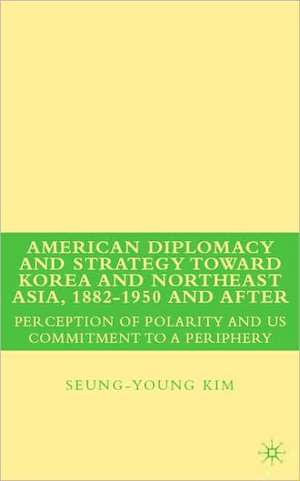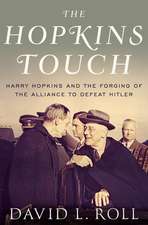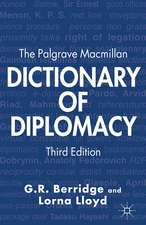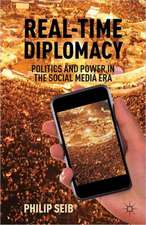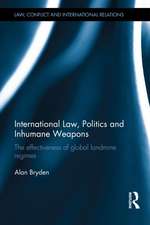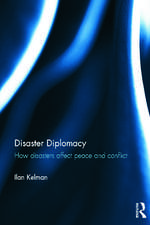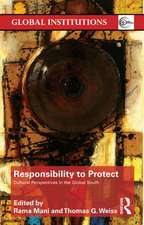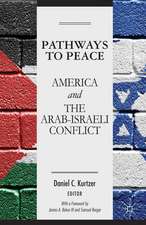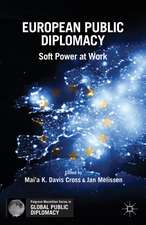American Diplomacy and Strategy toward Korea and Northeast Asia, 1882 - 1950 and After: Perception of Polarity and US Commitment to a Periphery
Autor S. Kimen Limba Engleză Hardback – 16 iun 2009
Preț: 388.72 lei
Nou
Puncte Express: 583
Preț estimativ în valută:
74.39€ • 76.18$ • 61.88£
74.39€ • 76.18$ • 61.88£
Carte tipărită la comandă
Livrare economică 18 martie-01 aprilie
Preluare comenzi: 021 569.72.76
Specificații
ISBN-13: 9781403975454
ISBN-10: 1403975450
Pagini: 287
Ilustrații: XIII, 287 p.
Dimensiuni: 140 x 216 x 20 mm
Greutate: 0.43 kg
Ediția:2009
Editura: Palgrave Macmillan US
Colecția Palgrave Macmillan
Locul publicării:New York, United States
ISBN-10: 1403975450
Pagini: 287
Ilustrații: XIII, 287 p.
Dimensiuni: 140 x 216 x 20 mm
Greutate: 0.43 kg
Ediția:2009
Editura: Palgrave Macmillan US
Colecția Palgrave Macmillan
Locul publicării:New York, United States
Cuprins
Abbreviations List of Tables Acknowledgement Introduction Sources of US Commitment toward Korea PART I: US DIPLOMACY TOWARD KOREA IN THE ERA OF THE RUSSO-JAPANESE WAR The Rise of Korean Expectation and Decline of US Commitment to Korea, 1882-1901 Great Power Rivalry and US Assessment at the Outbreak of the War US Diplomacy and the Japanese Imposition of Protectorate on Korea PART II: US DIPLOMACY TOWARD KOREA DURING WORLD WAR II Vision of Cooperation among the Allies and the Four- Power Trusteeship Plan for Korea Emergence of the Bi-Polar Perception and a Missed Opportunity for Diplomacy Consolidation of the Bi-Polar Perception and US Suggestion of the Thirty-Eighth Parallel PART III: US POLICY TOWARD KOREA FROM 1945 TO JUNE 1950 Uncertain Strategic Situation and Rise of Competing Recommendations toward Korea The Re-emergence of a Multipolar Vision and the Decision for Withdrawal from Korea The Erosion of Multipolar Perception and the Road to Intervention Conclusion: US Commitment toward South Korea since 1950
Recenzii
"This book is the best overview to date of U.S.-Korea relations from their inception in the Treaty of 1882 to the U.S. decision to join the Korean War in 1950. The author offers an original account of the postwar American diplomacy that led to the division of Korea and the outbreak of the Korean War. Well balanced between historical documentation and international relations theory, this book is an essential reference for those who study modern Korea from any disciplinary angle as well as for scholars of U.S. diplomacy in East Asia." - Yumi Moon, Assistant Professor in Modern Korean History, Stanford University
"American Diplomacy and Northeast Asia, 1882-1950 and After addresses an important subject for both historians and political scientists. Seung-young Kim examines the evolution and the sources of America's changing commitment to the Korean Peninsula. It combines extensive research into South Korean and U.S. archival materials with a sophisticated theoretical analysis to explain the importance of U.S. perceptions of changes in the polarity of Northeast Asian great power politics for the development of U.S. policy. Students and scholars will all benefit from Kim's contribution to the scholarship on Northeast Asian international politics and U.S. policy toward the Korean Peninsula." - Robert Ross, Professor of Political Science, Boston College, Associate, John King Fairbank Center for East Asian Research, Harvard University, and Senior Advisor, Security StudiesProgram, Massachusetts Institute of Technology
"Seung-young Kim. . . contends that few prior studies attempt to identify 'recurring patterns in the history of US commitment toward Korea." US pursuit of strategic interests, his main thesis holds, governed its Korea policy, rather than democracy or economic gain, providing a perfect example of the US approach 'toward a periphery'. . . Extensive research both in primary and secondary sources many in the Korean language constitutes a major strength of this study." - Pacific Affairs
"American Diplomacy and Northeast Asia, 1882-1950 and After addresses an important subject for both historians and political scientists. Seung-young Kim examines the evolution and the sources of America's changing commitment to the Korean Peninsula. It combines extensive research into South Korean and U.S. archival materials with a sophisticated theoretical analysis to explain the importance of U.S. perceptions of changes in the polarity of Northeast Asian great power politics for the development of U.S. policy. Students and scholars will all benefit from Kim's contribution to the scholarship on Northeast Asian international politics and U.S. policy toward the Korean Peninsula." - Robert Ross, Professor of Political Science, Boston College, Associate, John King Fairbank Center for East Asian Research, Harvard University, and Senior Advisor, Security StudiesProgram, Massachusetts Institute of Technology
"Seung-young Kim. . . contends that few prior studies attempt to identify 'recurring patterns in the history of US commitment toward Korea." US pursuit of strategic interests, his main thesis holds, governed its Korea policy, rather than democracy or economic gain, providing a perfect example of the US approach 'toward a periphery'. . . Extensive research both in primary and secondary sources many in the Korean language constitutes a major strength of this study." - Pacific Affairs
Notă biografică
SEUNG-YOUNG KIM is a Lecturer (assistant professor) in the Department of Politics and International Relations at the University of Aberdeen in Scotland, UK. He worked as a diplomatic and UN correspondent for The Chosun Ilbo newspaper in South Korea, and has published research articles in Cambridge Review of International Affairs and Diplomacy& Statecraft.
